PsychNewsDaily Publishers
100 Summit Drive
Burlington, MA, 01803
Telephone: (320) 349-2484
PsychNewsDaily Publishers
100 Summit Drive
Burlington, MA, 01803
Telephone: (320) 349-2484
Personality tests assess traits and behaviors, revealing insights into individual differences shaped by genetics and environment, aiding in personal growth and self-understanding.
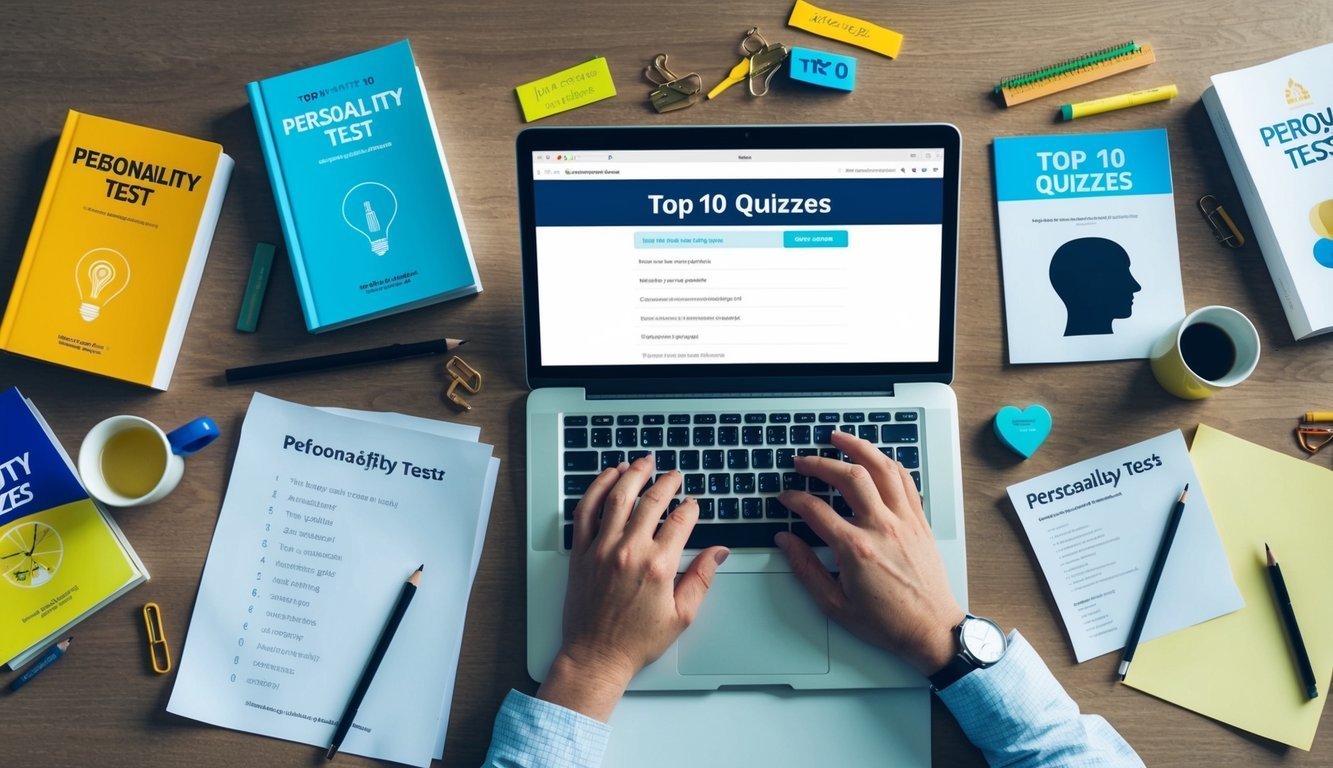
Personality tests help individuals learn more about themselves by assessing various traits and behaviors. These assessments can reveal how genetics and environment shape an individual’s persona. They also offer insights into popular personality tests available today.
Personality refers to the unique combination of traits that define how a person thinks, feels, and behaves. It includes both observable behaviors and internal traits.
Key facets of personality consist of:
These traits work together to create an individual’s persona, influencing their decisions and interactions. Understanding these facets is essential for interpreting personality tests accurately.
Both genetics and environment significantly impact personality development. Research suggests that heritability plays a part in forming personality traits. For instance, certain traits can be inherited from parents.
On the other hand, environment includes factors such as upbringing, culture, and life experiences. These factors shape how traits are expressed.
For example, someone may have a genetically predisposed trait for introversion, but their environment might encourage them to be more social. This interaction helps create a unique personality profile.
Many personality tests are available, each with its unique approach. Some of the most recognized include:
These tests can be useful for personal growth, career planning, and improving mental health. They provide helpful frameworks for understanding personality traits and how they manifest in daily life.
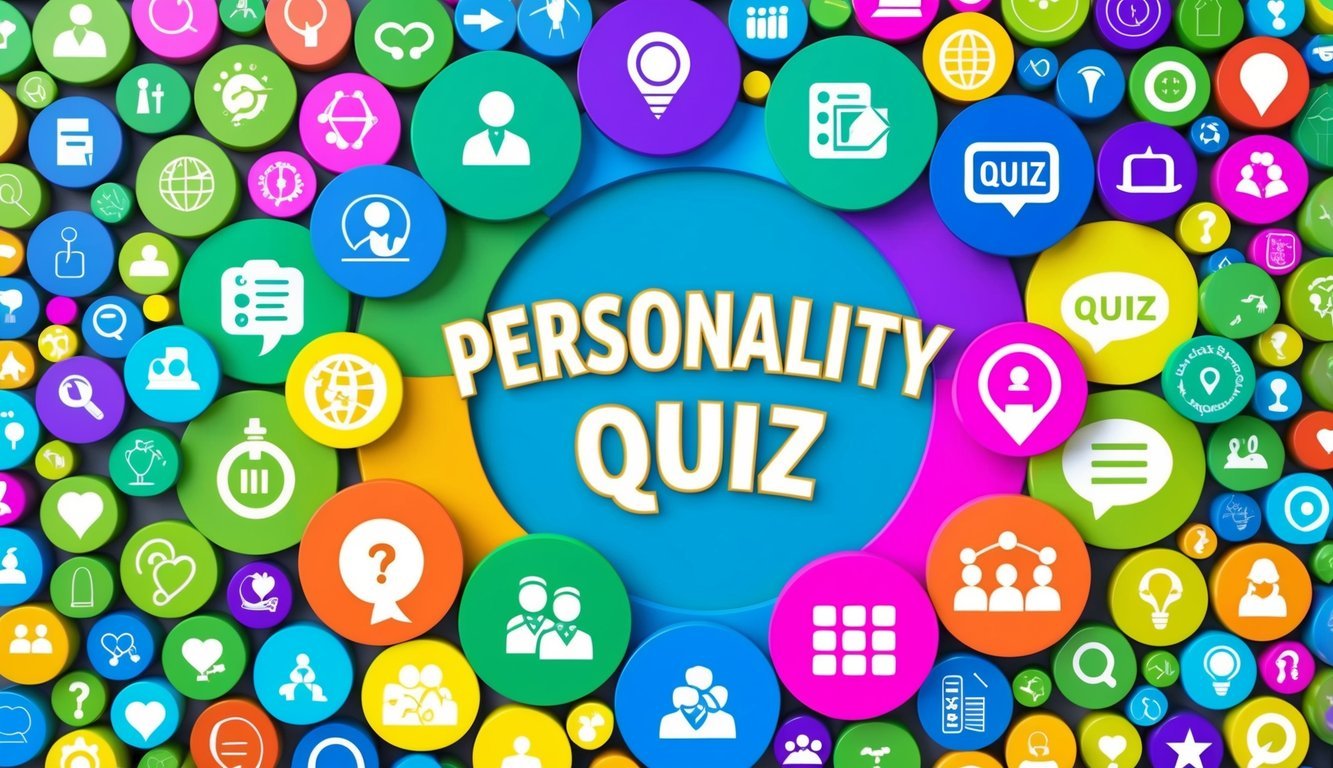
Personality quizzes come in various formats, each designed to reveal different aspects of a person’s character. Two popular models are the Myers-Briggs Type Indicator (MBTI) and the Big Five personality traits. The Enneagram also offers a unique approach, focusing on core motivations. These assessments can promote personal growth and better understanding of oneself.
Myers-Briggs Type Indicator (MBTI): This model categorizes personalities into 16 types based on four dichotomies, such as introversion vs. extraversion. Each type provides insight into how individuals perceive the world and make decisions.
Big Five: This approach measures five key traits: openness, conscientiousness, extraversion, agreeableness, and neuroticism. Each trait exists on a spectrum, allowing for a more nuanced view of a person’s personality.
Enneagram: This model divides personalities into nine types, each driven by different motivations and fears. It emphasizes personal growth by identifying areas for development.
Each of these systems offers unique insights into personality types, helping individuals understand behaviors better.
Personality tests can be powerful tools for personal growth. By identifying personality types, individuals can gain better self-awareness. For instance, someone with high neuroticism from the Big Five may work on emotional regulation.
Growth through MBTI: Individuals can seek roles that match their personality type, enhancing job satisfaction.
Using the Enneagram: It encourages self-reflection and helps individuals understand their core motivations. This awareness can lead to healthier relationships and personal development.
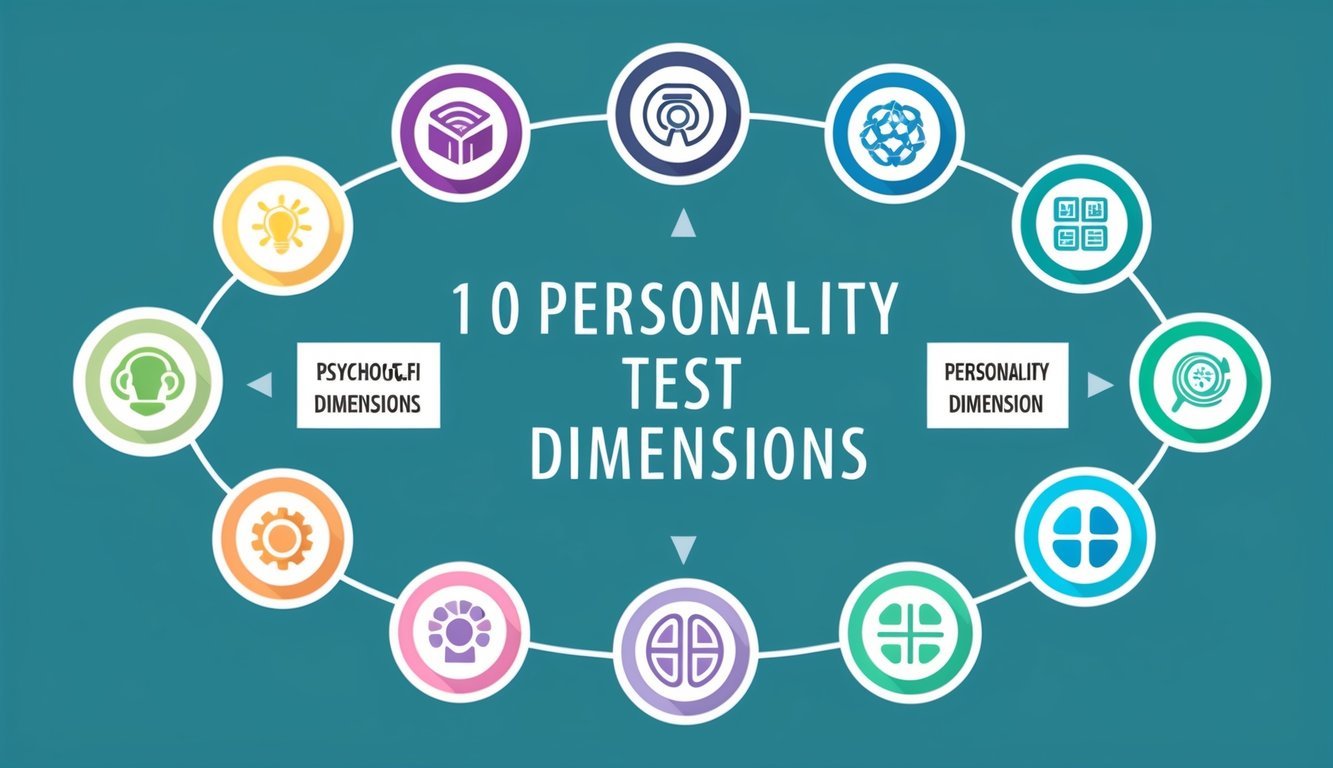
Personality tests measure different traits and preferences. Two major frameworks are the Big Five traits and the Myers-Briggs Type Indicator. Each offers unique insights into human behavior and personality.
The Big Five personality traits include openness, conscientiousness, extraversion, agreeableness, and emotional stability. These dimensions help in understanding how individuals think and behave.
Openness reflects imagination and curiosity. People high in this trait enjoy novelty and are open to new experiences.
Conscientiousness indicates organization and dependability. Those who score high are typically disciplined and goal-oriented.
Extraversion measures sociability. Extraverts thrive in social settings, while introverts may prefer solitude.
Agreeableness shows a person’s social harmony. High scorers are compassionate and cooperative.
Emotional Stability reflects resilience. Individuals with high emotional stability tend to manage stress well.
These traits combine to create a rich profile explaining how people interact with the world around them.
The Myers-Briggs Type Indicator (MBTI) sorts individuals into 16 personality types based on preferences. This method focuses on four pairs of opposing traits: Introversion/Extraversion, Sensing/Intuition, Thinking/Feeling, and Judging/Perceiving.
Introversion vs. Extraversion addresses where one gains energy. Introverts recharge alone, while extraverts get energy from socializing.
Sensing vs. Intuition focuses on how one perceives information. Sensors rely on concrete facts, whereas intuitives look for patterns and possibilities.
Thinking vs. Feeling highlights decision-making styles. Thinkers prioritize logic, while feelers emphasize emotions.
Judging vs. Perceiving describes lifestyle preferences. Judgers prefer structure, and perceivers lean toward flexibility.
Tools like Truity provide accessible MBTI assessments, making it easier for individuals to explore their personality types.
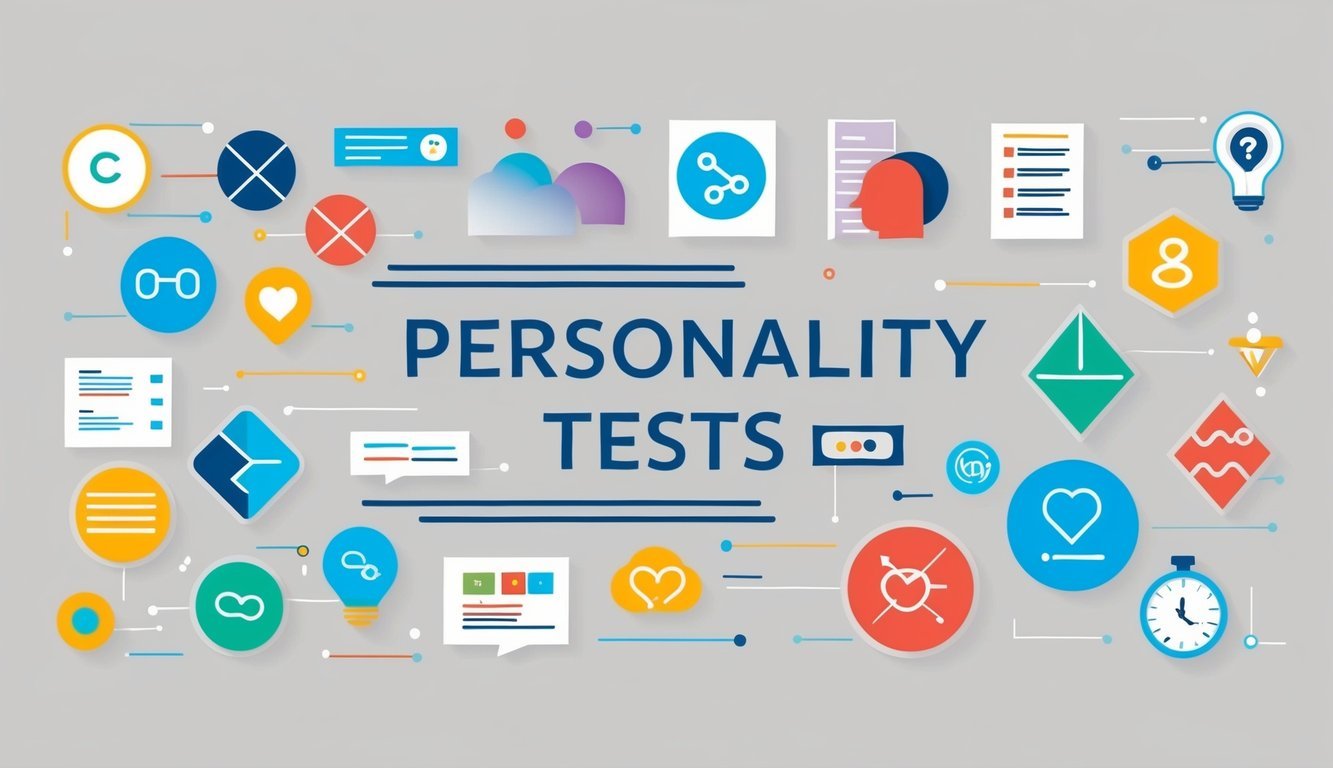
Personality tests play a vital role in various settings. They help individuals understand themselves better and improve interactions with others. These assessments can enhance professional growth and strengthen personal relationships.
In the workplace, personality assessments can boost team effectiveness. They provide insights into communication styles and work habits. By identifying strengths and weaknesses, these tools help teams function better together.
Common personality tests include the Myers-Briggs Type Indicator (MBTI) and the DiSC assessment. The MBTI focuses on preferences in how people perceive the world and make decisions. On the other hand, DiSC highlights behavior styles, helping team members understand how to collaborate more effectively.
Using these tests can lead to increased productivity. When employees understand their own traits and those of their colleagues, they can communicate and work together more efficiently.
In personal relationships, personality tests can enhance understanding and connection. They reveal communication styles and emotional needs, which helps individuals relate better to one another.
For example, the Enneagram is a popular tool for personal relationships. It categorizes personalities into nine types, each with distinct motivations and fears. This awareness allows individuals to navigate conflicts and strengthen bonds.
Another useful tool is the Five Love Languages quiz. It helps people discover how they give and receive love, which is essential for nurturing relationships.

Personality tests can provide valuable insights into how individuals think and feel. By applying these results, one can improve emotional intelligence and enhance communication skills in daily life.
Emotional intelligence (EQ) is the ability to understand and manage emotions. Taking an EQ test helps individuals identify their emotional strengths and weaknesses.
By knowing how they respond to different feelings, people can work on improving their emotional responses. For instance, if someone discovers they struggle with managing anger, they can learn techniques to calm themselves.
In daily situations, better EQ can help with recognizing others’ feelings as well, leading to stronger relationships. Using techniques based on test results, such as practicing empathy, can deepen connections and understand motivations behind actions.
Communication skills are essential for everyday interactions. The results from personality tests can shine a light on how one communicates.
Someone may learn they tend to be more assertive or passive in discussions. Recognizing this allows for adjustments to improve their approach to conversations.
For example, if an individual tends to dominate discussions, they can practice active listening instead. This involves giving others space to share their thoughts, thus improving overall dialogue.
Incorporating feedback from personality tests can lead to clearer and more open communication. Enhanced communication helps in both personal and professional relationships, creating a more supportive environment for self-discovery and growth.
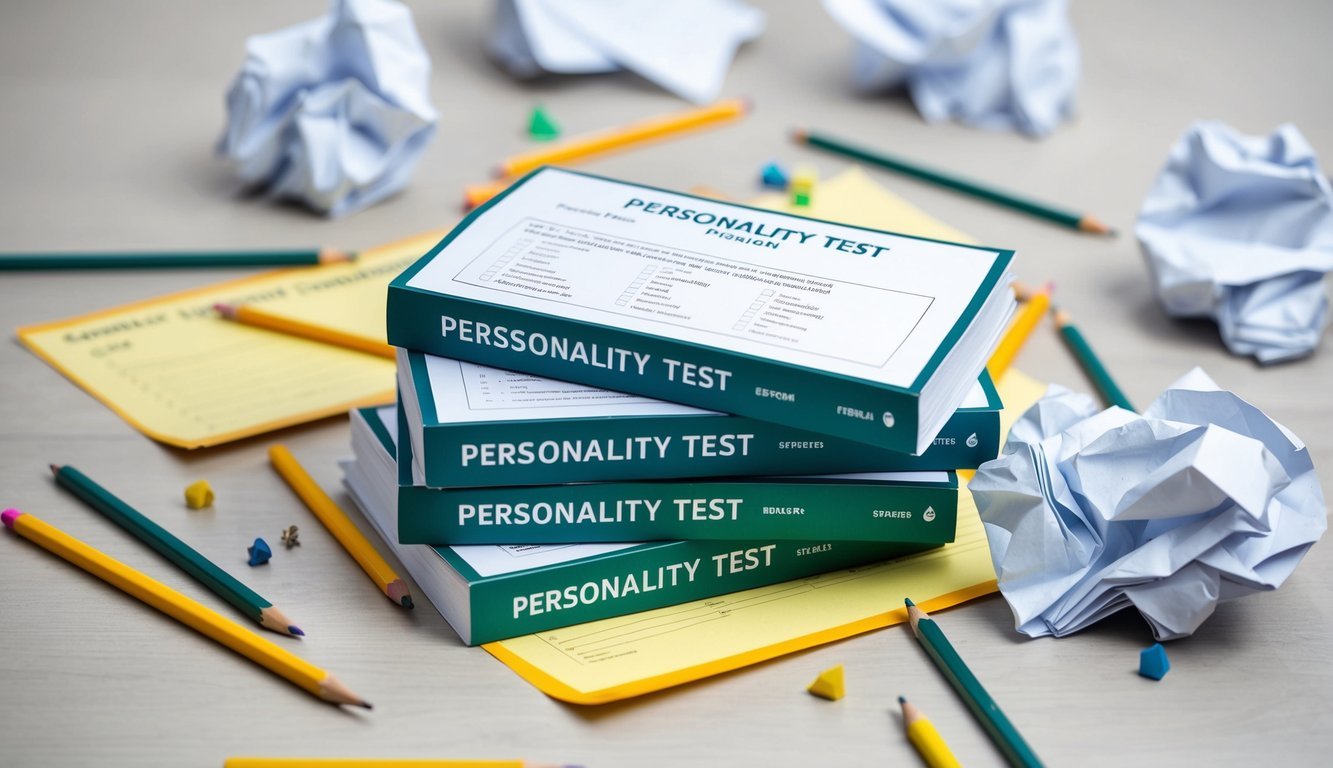
Personality tests can play a significant role in mental health. They often support self-discovery by helping individuals understand their traits better.
These assessments encourage personal growth. Knowing one’s personality type allows people to identify their strengths and weaknesses. This insight can lead to positive changes in behavior and mindset.
Emotional stability is another benefit. By understanding their emotional patterns, individuals can learn how to manage stress and anxiety more effectively. This often results in healthier relationships.
Honesty is vital when taking these tests. Those who answer questions truthfully can gain more accurate insights. This honesty fosters a sense of vulnerability, which can enhance connections with others.
Examples of benefits from using personality tests:
Many people find that taking these quizzes can reduce feelings of isolation. They realize they are not alone in their struggles and can seek help when needed.
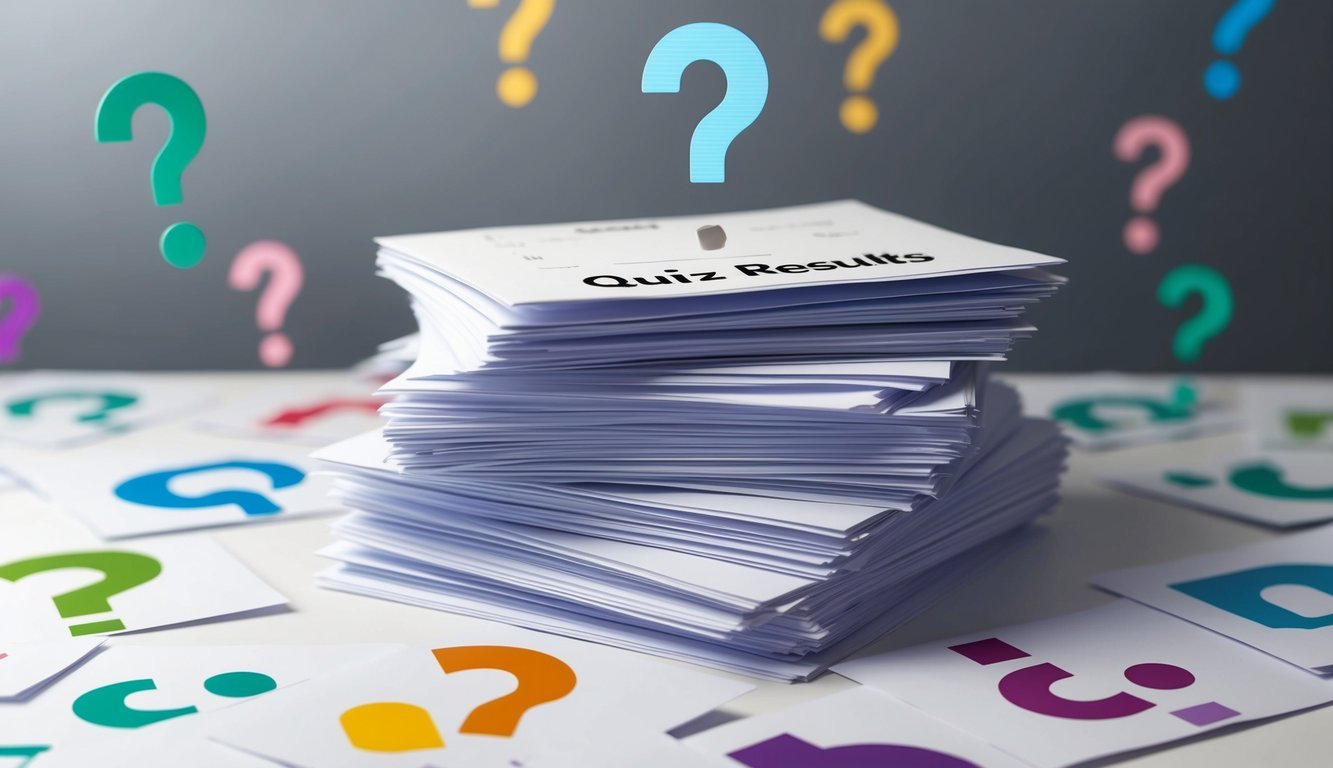
Many people have questions about personality tests and how they can aid in self-discovery. This section addresses common inquiries related to the most popular quizzes and their effectiveness in understanding personality traits.
Some of the most popular personality quizzes include the Myers-Briggs Type Indicator (MBTI), the Enneagram, and the Big Five personality test. Each quiz offers unique insights and can help individuals learn more about their strengths, weaknesses, and preferences.
BuzzFeed offers a wide array of engaging personality tests on its website. Users can explore various themes, from fun and quirky quizzes to those focused on deeper self-discovery, making it a great resource for anyone interested in personality exploration.
The Enneagram test is known for its depth in assessing personality types. Many find it valuable, as it categorizes individuals into nine distinct types, offering insights into motivations and behaviors. Its accuracy often depends on personal reflection and understanding of the results.
The MBTI test is designed to provide individuals with a clearer picture of their personality. By categorizing people into 16 different types based on preferences, it helps users understand their behavioral tendencies and how they interact with others.
Quizzes like “Which Disney Character Are You?” or “What does your favorite color say about you?” offer lighthearted fun alongside meaningful insights. They can spark interesting reflections about personality traits while providing entertainment.
The 16 personalities test focuses on categorizing people into 16 distinct types based on various traits. In contrast, the Big Five personality test measures five core dimensions—openness, conscientiousness, extraversion, agreeableness, and neuroticism. Each test provides valuable yet different perspectives on personality.